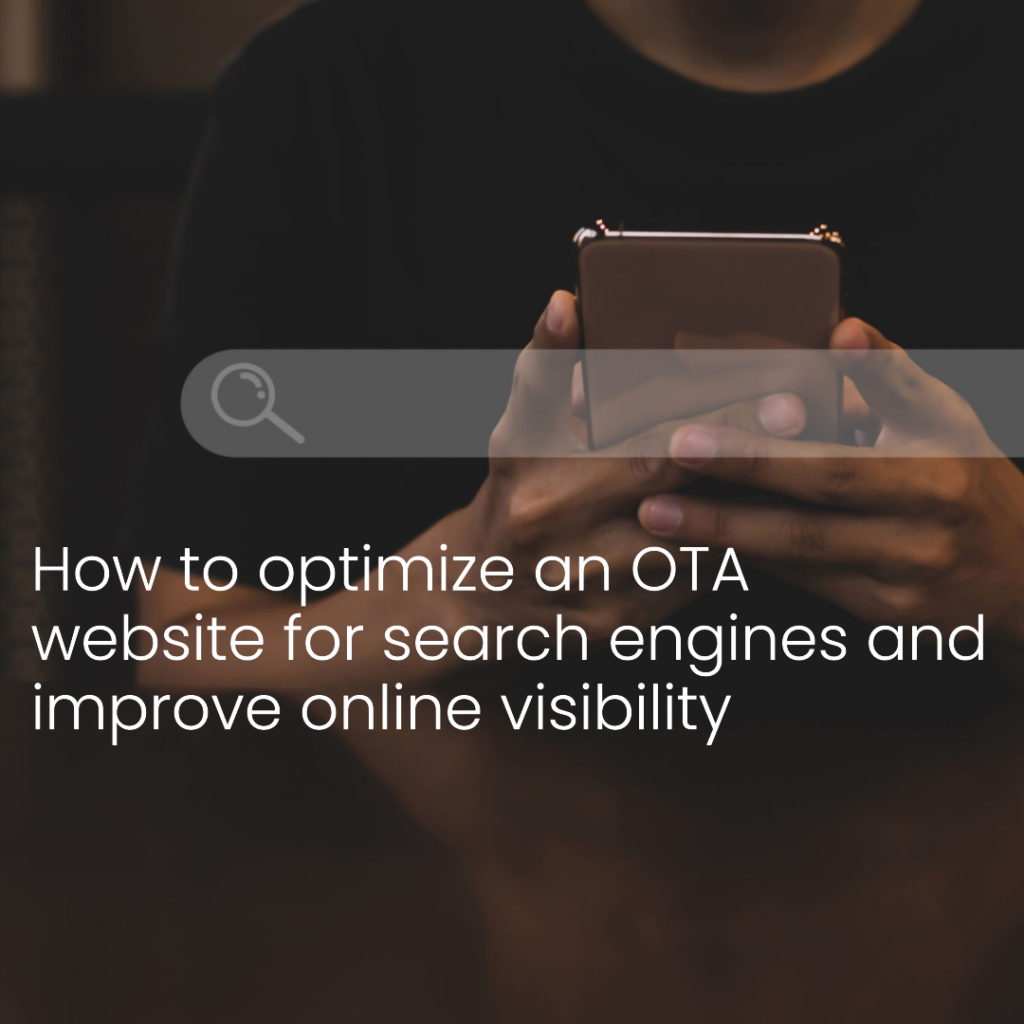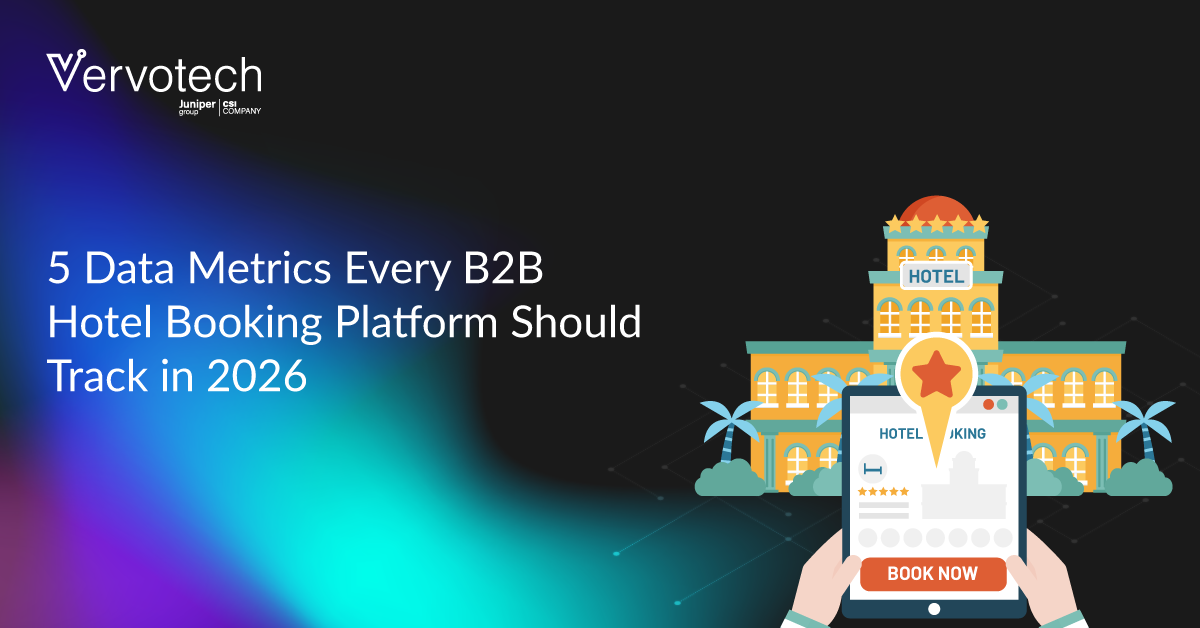As the travel industry becomes increasingly digitized, online travel agencies (OTAs) are crucial to travel planning and booking. Over 60% of leisure travelers find and book stays online. As an OTA, it’s excellent news for you. However, as you already know, a multitude of OTAs are cropping up worldwide as the online travel market expands. So how do you compete? How do you remain relevant in such a crowded market? Optimizing your OTA website for search engines could be one of your answers.
SEO can help you maximize your online visibility, appear in the booking cycle most of the time, and convert customers when travelers make a buying decision.
Here, in this blog post, we’ll explore some key strategies for optimizing an OTA website for search engines.
Five Steps to Optimize an OTA Website for search engines
Search engines are evolving. They are continuously making efforts to make content helpful for the users. Since 2022, google has made 13 algorithmic updates, which you can see in the image below. Most of these updates are dedicated to improving user experience, providing more helpful content to users, and eliminating spam. Google is still the market leader and about 93 % of search volume comes from Google search.

Image: Google Developer Blog
The idea behind making the above point before discussing SEO optimization strategy is to take you in the direction that your SEO philosophy should focus on producing web content that answers user queries with utmost clarity (you can call it SEO UX). If you stick to this philosophy, search engines will reward you.
Now, let’s just quickly move on to how to achieve this; we will look entire OTA website SEO optimization strategy in five steps.
Also Read – The Importance of Responsive Web Design for OTAs and Its Implementation
1. Conduct Keyword Research
Keyword research is the foundation of any successful search engine optimization (SEO) strategy. Before optimizing your OTA website, it’s important to understand what keywords your potential customers are searching for. Use publicly available tools like Google Keyword Planner, Ahrefs, or SEMrush to find high-traffic keywords related to travel, hotels, flights, and other relevant terms.
Once you’ve identified the keywords you want to target, incorporate them into your website content. This includes your page titles, headers, meta descriptions, alt texts and body text.
2. Optimize Your Website Structure
A well-structured website is easier for search engines to crawl and index, which can improve your website’s rankings. Some key elements of a well-structured website include:
- Clear navigation: Ensure that your website’s navigation is clear and easy to follow. Use descriptive labels for each menu item and organize your pages into logical categories.
- URL structure: Use descriptive URLs that include your target keywords. For example, instead of using a URL like www.otawebsite.com/page1, use a URL like www.otawebsite.com/hotels-in-Paris.
- Page titles and meta descriptions: Use descriptive page titles and meta descriptions that include your target keywords. These are the snippets of text that appear in search engine results, so they should be compelling and accurately reflect the content on your page.
3. Use Schema Markup
Schema markup is a type of structured data that helps search engines understand the content on your website. By using schema markup, you can provide additional information about your hotels, flights, and other travel-related content.
For example, you can use schema markup to provide information about hotel amenities, room rates, and availability. This can make it easier for potential customers to find the information they’re looking for and can improve your website’s visibility in search engine results.
4. Optimize Your Website Content
Your website’s content plays a crucial role in your search engine rankings. Here are some ways to optimize your website’s content:
- Use target keywords naturally: Incorporate your target keywords into your website’s content but avoid keyword stuffing. Use keywords naturally and in context.
- Create high-quality content: Your website’s content should be informative, engaging, and useful to your potential customers. This can include blog posts, travel guides, and other types of content that provide value to your readers
- Use header tags: Use header tags (H1, H2, H3, etc.) to break up your content and make it easier to read. This also helps search engines understand the structure of your content.
5. Optimize Your Images
Images can also play a role in your website’s search engine rankings. Here are some tips for optimizing your images:
- Use descriptive file names: Use descriptive file names that include your target keywords. For example, instead of using a file name like “image123.jpg,” use a file name like “beach-resort-maldives.jpg.”
- Use alt text: Alt text is a description of your image that helps search engines understand what the image is about. Use descriptive alt text that includes your target keywords.
- Compress your images: The large images can slow down your website, which can hurt your search engine rankings. You can use tools like TinyPNG to compress images.
After implementing the above strategies, it’s important to monitor your website’s performance. Use publicly available tools like Google Analytics and Google Search Console to track your website’s traffic, rankings, keyword positions, SEO errors, and other metrics. This can help you identify areas for improvement and adjust your strategy accordingly.
Optimizing an OTA website for search engines is an ongoing process that requires patience, persistence, and a willingness to adapt. It’s a long-term game, and it takes at least 6-8 months to start seeing visible results. Also, for OTAs or any other similar businesses, it’s important that they set realistic expectations from SEO efforts. You need to have a dedicated budget as you have for other marketing efforts, and with SEO, things will not change radically. You have to be ready for the long ball. A query optimized today, “hotels near opera house in Australia’ can keep getting you customers for 20 years or more, as long as you retain your position.
Therefore, it’s advisable not to track last-click attributes. But to focus on metrics like brand searches, engagement time, number of keywords ranking on positions 1-10. If you keep on improving these metrics along with maintaining the SEO optimization methods mentioned above. You will be able to achieve revenue objectives without obsessing over them separately.







